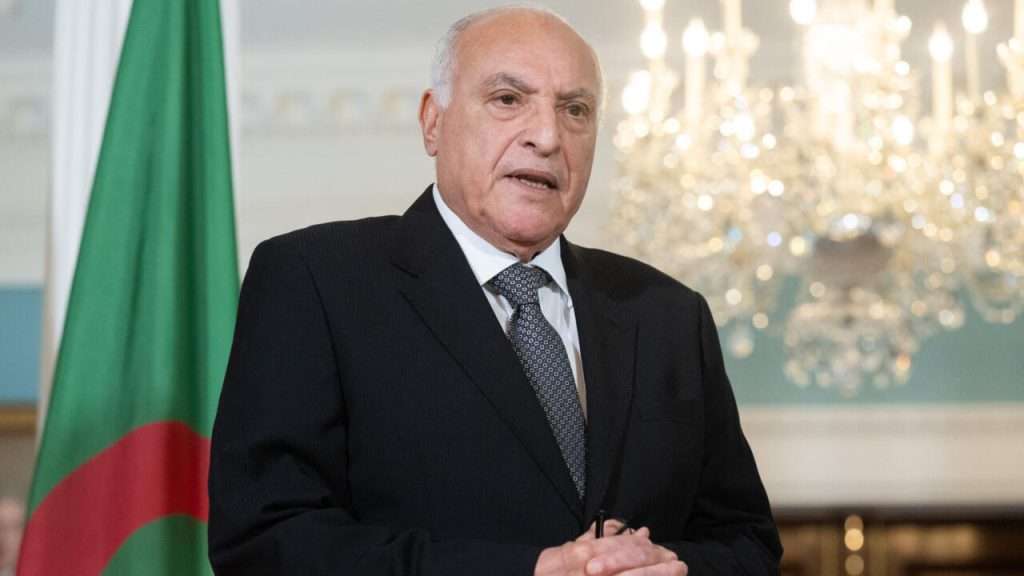Algeria at UN: States should have equal access to AI technology

Algeria’s Minister of State, Ahmed Attaf, spoke at the United Nations Security Council (UNSC), warning about the potential of a digital and technological divide in the world, saying that countries will fall behind unless AI technology is guaranteed to be shared equally.
Attaf suggested that an existing agreement could serve as the foundation for a fairer framework on AI, according to Algerian government-friendly outlet AL24News, September 25.
Speaking at the high-level UNSC debate on the impact of artificial intelligence on international peace and security, the Algerian diplomat said that the UN Convention against Cybercrime, “could serve as a legal foundation to strengthen states’ sovereignty over their data and protect them against cyberattacks.”
Attaf stressed the importance of being ahead of the curve when it comes to countries’ access to AI technology, saying “AI is no longer just a technical tool; it has become a key geo-strategic factor in redefining power relations on the international stage.”
However, the integration of AI across society is raising growing concerns, as its potential for both major benefits and serious risks becomes increasingly clear. Mr Ahmed Attaf described it as a “double-edged sword,” citing security, legal, and ethical challenges that could impact state sovereignty and social cohesion.

Speaking to representatives from some of the most powerful and influential countries on Earth, Attaf suggested 3 key ways to resolve this increasing divide in AI technology.
First is sovereignty, meaning that states must adhere to the UN Charter’s principles of independence and territorial integrity.
Secondly, security. He says that the world must now agree upon clear rules around AI technology’s application in the realms of military and security.
Lastly, his third key principle is that states must work together in the sake of development. He stressed the need to guarantee equal access to AI technologies, ensuring that a rift between North and South does not open too wide that the gap cannot be bridged.
Attaf noted the extremely difficult time that developing countries face in trying to catch up to, or even to simply keep pace with more technologically advanced countries, particularly drawing light to his home continent of Africa.
The global average for internet penetration, or how much of the population has access to the internet averages 68%. Meanwhile, Africa remains below 38%.
Of the 55 member of the African Union, only 10 nations are reported to have gained the necessary digital infrastructure to achieve such a level of sophisticated information technology such as widespread AI capabilities and applications, noting the continents fragile legal and regulatory frameworks.
Another alarming statistic illustrates the challenge: Africa possesses just 1% of global data storage and processing capacity while accounting for around 18% of the world’s population, underscoring the continent’s vulnerabilities in digital sovereignty.
However, although the numbers do not paint a positive picture of global AI access, Attaf emphasised that these obstacles should not be a reason to shy away, noting that they are not insurmountable.
He explained that the concrete steps that must happen now to prevent this bleak future are major investments in digital infrastructure, skills development, and modern governance systems, drawing attention to his country’s own digital development programmes, promising that his nation is willing to help other African nations on their journey to digital sovereignty.
African nations are not blind to the major technological advancements that AI heralds, and Attaf notes that African nations refuse to be left behind as they once were during various similar revolutions such as the industrial and information revolutions. The consequences an legacy of centuries of colonialism.
He emphasised the continent’s work towards a responsible future in AI technology, noting countries’ efforts to build their international partnerships, creating beneficial technological development strategies that will hopefully contribute to future AI technology governance strategies.
Attaf hopes that by creating an international governance strategy, and in particular by including Africa in that process, combined with technology sharing, the continent will not suffer the same fate they have in the past.
AL24 News, Maghrebi.org
Want to chase the pulse of North Africa?
Subscribe to receive our FREE weekly PDF magazine










